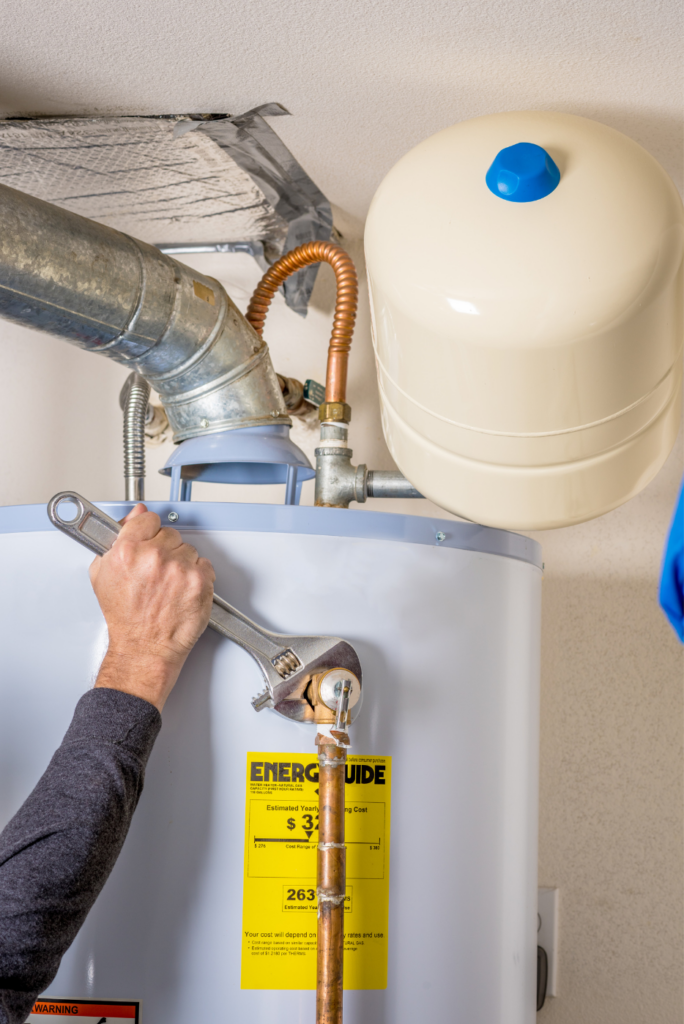Understanding Water Heater Challenges: A Comprehensive Guide For The Most Common Challenges
Understanding Water Heater Challenges: A Comprehensive Guide For The Most Common Challenges
Blog Article
What are your beliefs about Common Problems with Tank Water Heaters?

Picture starting your day without your routine warm shower. That currently sets an inadequate tone for the remainder of your day.
Every home needs a reputable water heater, yet only a few recognize how to handle one. One easy method to keep your hot water heater in top form is to look for faults consistently and fix them as quickly as they show up.
Remember to turn off your water heater prior to smelling around for faults. These are the water heater faults you are more than likely to encounter.
Water too hot or as well cool
Every hot water heater has a thermostat that determines how hot the water gets. If the water coming into your house is too hot despite setting a hassle-free optimum temperature level, your thermostat may be malfunctioning.
On the other hand, too cold water might be because of a fallen short thermostat, a damaged circuit, or inappropriate gas circulation. For instance, if you utilize a gas water heater with a damaged pilot light, you would obtain cold water, even if the thermostat remains in ideal condition. For electrical heating systems, a blown fuse may be the culprit.
Not enough warm water
Water heaters can be found in lots of sizes, relying on your hot water needs. If you lack hot water before everyone has had a bathroom, your water heater is as well small for your family size. You must consider mounting a larger hot water heater container or choosing a tankless hot water heater, which occupies less area as well as is extra long lasting.
Weird noises
There are at least five type of sounds you can learn through a hot water heater, but the most common interpretation is that it's time for the water heater to retire.
First of all, you should know with the regular seems a water heater makes. An electric heating system may sound various from a gas-powered one.
Popping or banging audios typically mean there is a piece of sediment in your tanks, and also it's time to clean it out. On the other hand, whistling or hissing audios may simply be your shutoffs letting some stress off.
Water leakages
Leakages might originate from pipes, water links, valves, or in the worst-case situation, the storage tank itself. Over time, water will corrode the tank, and locate its way out. If this takes place, you need to replace your hot water heater immediately.
However, before your adjustment your entire tank, make certain that all pipelines are in location which each shutoff works completely. If you still require help identifying a leak, call your plumber.
Rust-colored water
Rust-colored water means one of your hot water heater parts is worn away. Maybe the anode pole, or the tank itself. Your plumber will be able to identify which it is.
Warm water
Regardless of exactly how high you established the thermostat, you won't get any hot water out of a heater well past its prime. A water heater's efficiency might reduce with time.
You will additionally obtain lukewarm water if your pipes have a cross link. This indicates that when you switch on a tap, warm water from the heating unit streams in alongside routine, cold water. A cross connection is very easy to spot. If your warm water faucets still pursue shutting the hot water heater valves, you have a cross link.
Discoloured Water
Rust is a significant cause of filthy or discoloured water. Corrosion within the water storage tank or a falling short anode rod might create this discolouration. The anode rod secures the container from rusting on the inside as well as must be inspected annual. Without a pole or a properly working anode pole, the warm water quickly rusts inside the tank. Call a specialist water heater service technician to determine if changing the anode rod will repair the issue; if not, replace your hot water heater.
Final thought
Ideally, your water heater can last 10 years before you require an adjustment. Nonetheless, after the 10-year mark, you might experience any of these faults more routinely. At this point, you need to add a brand-new hot water heater to your budget.
How To Troubleshoot 3 Common Water Heater Problems in Twin Cities
The Water Heater Is Leaking
A leaky cold water inlet valve A loose pipe fitting A leaky temperature and pressure relief valve A corroded anode rod A cracked tank Turn Off Your Water Heater:
Shut off your gas water heater by turning the gas valve on the unit to the “OFF” position. Shut off your electric water by switching its power off at your electrical panel. Look for a two-pole breaker labeled “water heater” and turn it to the “OFF” position. Move the ball valve connected to the water heater to be perpendicular to the piping at a 90° angle. Look for the Leak:
Depending on whether the water is coming from the tank's top or bottom, you’ll want to look for the leak in different locations.
If the leak comes from the top of the tank, carefully look for water escaping from the cold water inlet valve or loose pipe fittings. Rusted hot and cold water valves can have loose connections with the tank, with water leaking out of them.
https://mspplumbingheatingair.com/blog/how-to-troubleshoot-3-common-water-heater-problems
Do you really like reading about Water Heater Repair and Troubleshooting? Try to leave feedback below. We would be delighted to hear your thoughts about this article. We are looking forward that you visit us again soon. Sharing is nice. One never knows, you may be doing someone a favor. We thank you for reading our article about Water Heaters Problems.
Urgent plumbing? Call us. Report this page